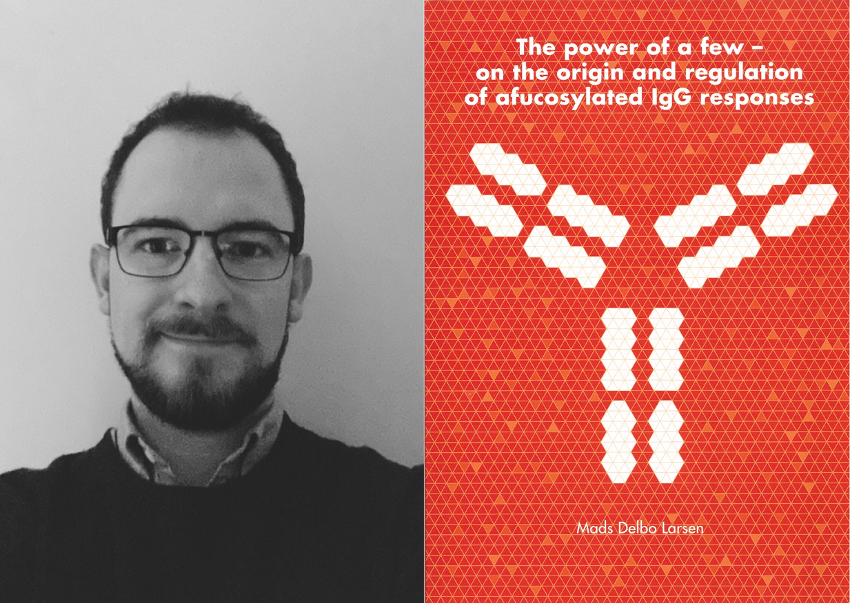Thesis defense Mads Larsen Cum Laude!
News Mads Larsen has been awarded his PhD cum laude! His research focused on an extremely potent type of antibodies, potent in fighting malaria, but harmful when formed during pregnancy and directed against blood cells of the fetus. The common factor? Antigens incorporated in the membrane of blood cells.
Mads Larsen has been awarded his PhD cum laude! His research focused on an extremely potent type of antibodies, potent in fighting malaria, but harmful when formed during pregnancy and directed against blood cells of the fetus. The common factor? Antigens incorporated in the membrane of blood cells.
Antibodies are proteins that protect against infections but can cause disease if they target the wrong cells. For example, blood transfusion, but also a pregnant woman may develop antibodies against her fetus's blood cells, inherited from the father. These antibodies can be extra potent if they lack fucose (afucosylated IgG), which is rare but enriched in certain responses.
During malaria and viral infections, microbial proteins are presented on infected blood cells, resembling the way fetal blood cells present antigens. In his thesis Mads tested the hypothesis that this may point to an evolutionary conserved mechanism increasing the potency of antibodies towards foreign proteins on human cells.
To this end, Mads measured antibody fucosylation in various immune responses and studied afucosylated IgG regulation in B cells. He found that afucosylated IgG target host cell surfaces, as it occurs in alloimmunization to blood cells, but also found in immune responses to enveloped viruses such as HIV and SARS-CoV-2. In addition, afucosylated occurred very strongly to antigens expressed on RBC by the causative agents of malaria and associates with protection. Furthermore, these responses were only observed to these antigens in the context of RBC, but not when delivered as soluble protein by vaccination. These findings enhance our understanding of antibody responses and could improve vaccine design.
Mads conducted his research in the group of Gestur Vidarsson and defended his thesis The power of a few – on the origin and regulation of afucosylated IgG responses on 15 January 2025 at Utrecht University.
